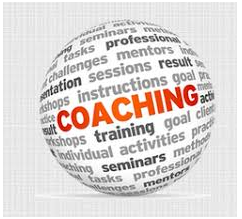Coaching and Mentoring – Exploring the dimension of Emotional Intelligence, the EQ factor
coaching and mentoring in corporate coaching – Exploring the dimension of Emotional Intelligence, the EQ factor
When it comes to corporate coaching EQ plays a hugely important role.
In coaching and mentoring and particularly in corporate coaching the emotional dimension is often one that coaches shy away from. Often, in corporate coaching emotional skills create the difference between a merely competent manager and one who is truly effective. Hence, a great deal can be achieved with a heightened awareness of emotional intelligence or EQ when it comes to coaching and mentoring and finding a mentor with a high EQ can be highly beneficial.
Components of emotional intelligence
Even with experts engaging in IQ tests as a method of measuring the ability of employees, they acknowledged that the competencies being assessed were only a part of what contributes to an individual’s personal and professional success. The five components of emotional intelligence in coaching and mentoring mainly consist of:
- Self-awareness and self-control – understanding one’s core beliefs and values, evaluating how feelings influence actions and responding appropriately in emotional situations.
- Empathy – the ability to understand and appreciate the circumstances and viewpoints of others and to understand their needs and feelings. Empathy involves understanding the emotional reactions of others and how such affect their actions. The ability to show empathy stems from a genuine concern for other people. However, this is not an ability that everyone possesses. If one is to lead others through a difficult change, one needs to understand how the transition affects the individuals concerned in order for effective leadership to take place. To improve the ability to be empathetic, it is important to be mindful not only of what employees are saying but also of the underlying emotions that are motivating their speech as well as their actions.
- Social expertness – establishing positive relationships with people by projecting openness and optimisim.
- Personal influence – establishing credibility and accountability enables one to persuade, guide and inspire others.
- Mastery of mission, vision and guiding principles – the ability to understand one’s role, company purpose and how they align.
- Steering point – the steering point is the objective that results from a synthesis between goals, hopes for the future and ideals.
Body language and facial expressions often communicate volumes in their own right. For this reason it is wise to ensure that they therefore convey a positive message. As coach and mentor, it is also a good idea to ask yourself:
- How do others see me?
- Am I friendly and approachable?
Gauge opinions from others to establish how you come across. The influence you have within your organisation is based on numerous characteristics, for example, your expertise, the network of relationships that you build over time, your ability to regulate and control your emotional reactions and your ability to convey enthusiasm and purpose. When others are engaged in finding a mentor they will assess these characteristics in you in order to determine whether they feel comfortable engaging with you.
Higher EQ scores mean higher productivity levels
A significant gap separates the productivity levels of high performing, star employees from the productivity levels of average employees in medium or high complexity fields. This difference can be attributed to EQ. Companies that practise hiring based on higher scores on EQ tests observe a measurable increase in productivity. This difference is especially evident in sales roles where emotional aptitude is vital.
Intelligence, knowledge and skills do not guarantee success. In numerous studies, the determining critical success factor is high emotional intelligence.
When asked what irritates them the most, nine out of ten employees will often maintain that they don’t receive enough recognition for their accomplishments. Most often, good work is not rewarded or praised. Without mentoring or feedback employees often misunderstand and sometimes misinterpret how their work is being evaluated. Finding a mentor with an understanding of these factors is critical.
Many managers are uncomfortable correcting employee behaviours yet finding a mentor is extremely important
There are also times in any corporate coaching process when employees need to know when they are falling short of expectations and for this reason finding a mentor is extremely important. As a leader, providing guidance is part of the requirements of the job, yet, must be tailored to individual circumstances since every person and situation is unique. Unfortunately, many managers are uncomfortable when correcting employee behaviours as they fear emotional blowback. Certain managers also believe that financial compensation is all the praise an employee needs. This is a fallacy that coaching also attempts to address.
In a nutshell, when it comes to coaching and mentoring in corporate coaching all good managers coach their staff members and in today’s world employee outputs and how they achieve results must be carefully evaluated. This leads coaches into more personal territories which certain managers and employees find uncomfortable. Yet, people do desire and need feedback in terms of what they are doing well and where they are in need of improvement hence finding a mentor is crucial.
Click here to enrol in a coaching programme: https://boti.co.za/book-now/


